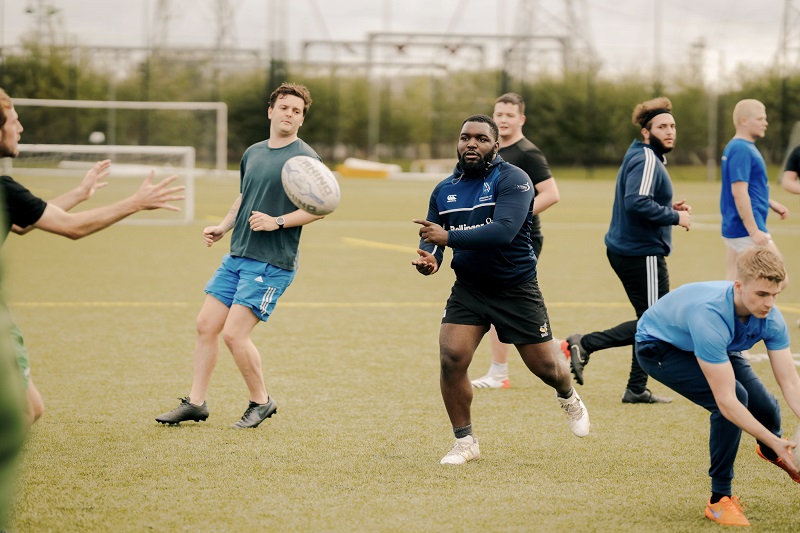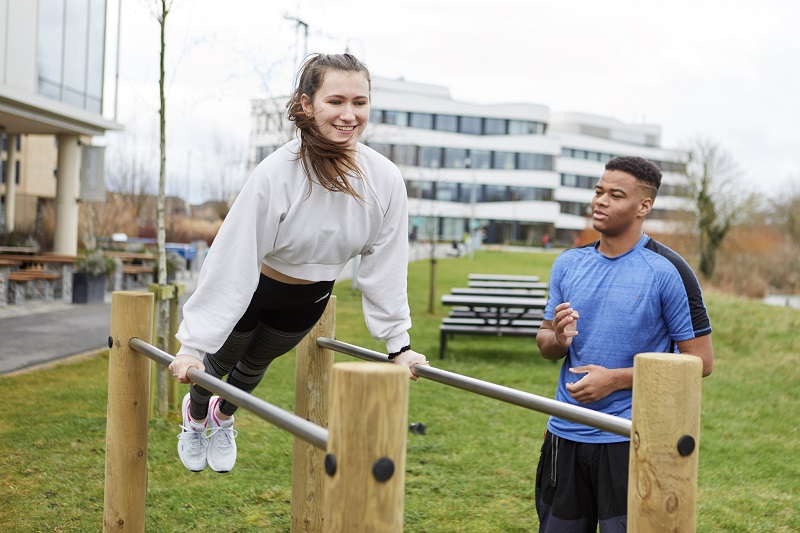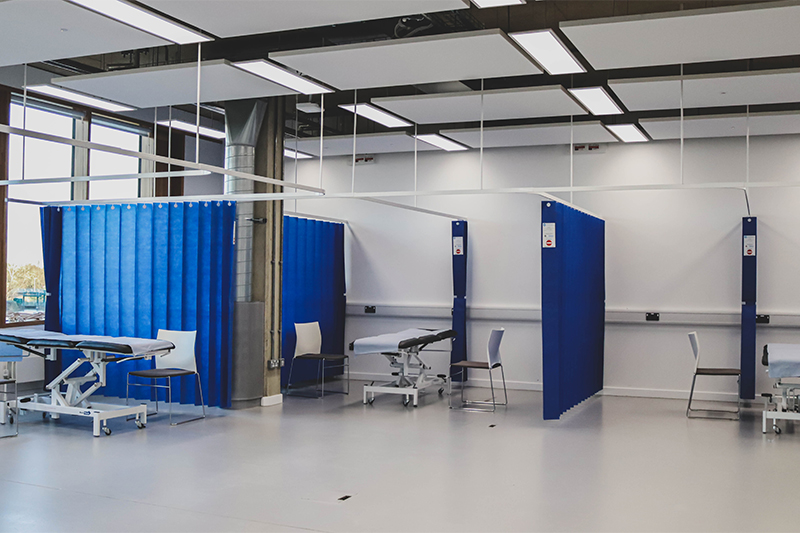
Robert Lyon
Senior Lecturer in Exercise and Health Psychology
Faculty of Arts, Science and Technology
DiscoverUCAS Code
BSc: CC68
BSc with Foundation: CC86
Level
Undergraduate
Duration
Full Time: 3 years
Full Time Foundation: 4 years
Part Time: 4 years
Starting
September
BBC at A Level or,
DDM at BTEC
Fees UK 24/25
Full Time: £9,250
Part Time: £1,540 per 20 credit module
Integrated Foundation Year: £9,250
Fees International 24/25
Full Time: £15,220
Integrated Foundation Year: £15,220
Location
For questions regarding study and admissions please contact us:
The University of Northampton’s British Psychological Society (BPS) accredited Sport and Exercise Psychology degree provides a study route for careers in the field of sport and exercise psychology; for sport psychologists to improve coaching, athletic performance, and wellbeing in sport, and for exercise psychologists to improve the adoption, enjoyment, and maintenance of physical activity for health and wellbeing in general populations. Studying this sports psychology degree BSc, you will cover all the core areas of psychology required for BPS accreditation, along with modules that will develop your understanding of key psychological factors associated with enhanced performance and well-being in sports, exercise, and physical activity across the life span.
This course is a first step in the teaching and support of applicants who wish to embark on the journey of becoming an accredited sport and exercise psychologist. It will also serve those who wish to improve their knowledge and skills of sports performance and/or lifestyle health behaviour change, whether this be as a personal trainer, coach, or health and fitness advocate.
Professional Accreditation: British Psychological Society (BPS)
Updated 18/04/2024
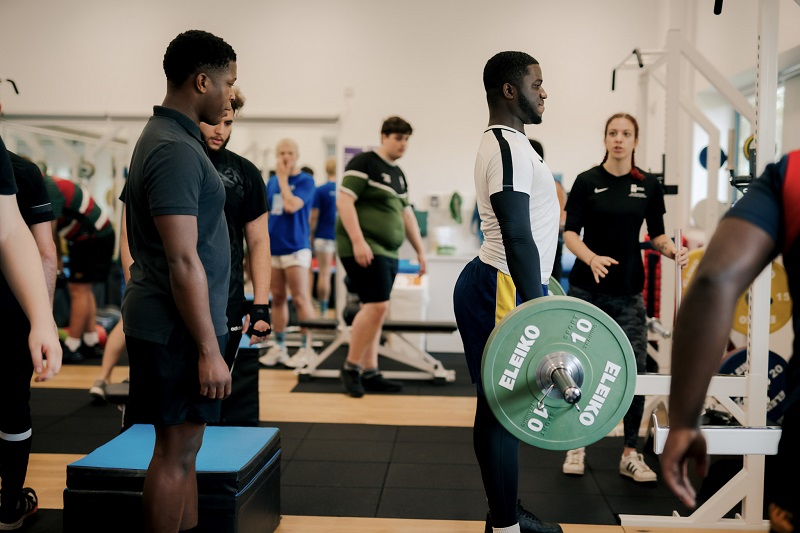
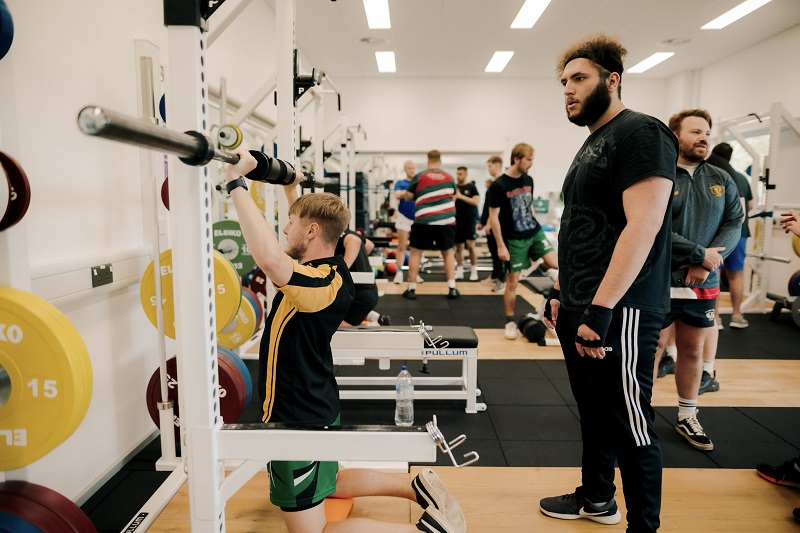
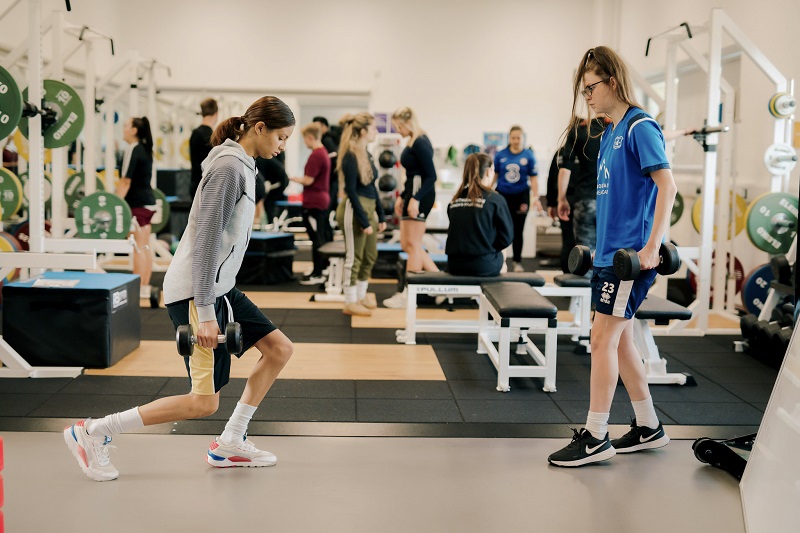
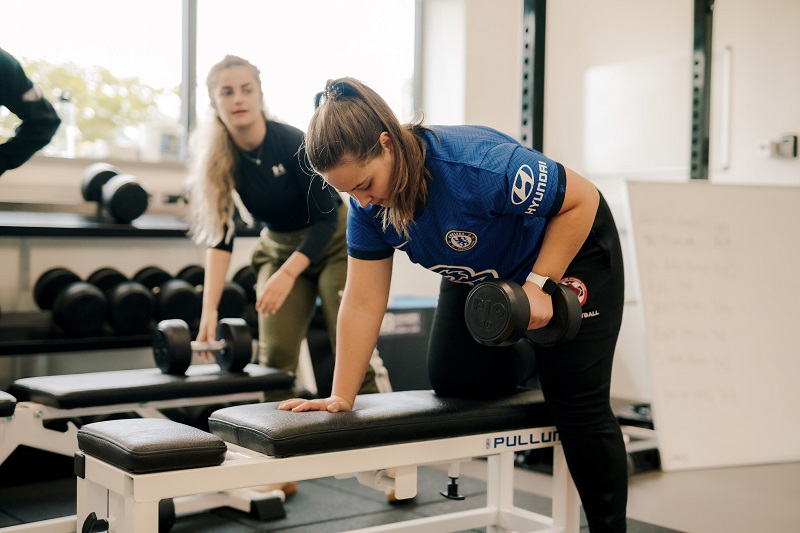
From becoming more active to thriving in the world of elite sport: It’s all in the mind.
Understanding factors affecting the thoughts, feelings, and behaviours associated with peak sport performance and optimal functioning in exercise and physical activity has always been important and is becoming increasingly more so in today’s world. Whether you have aspirations to work with top sports performers, or to focus on encouraging more people to become more active, when you study the Sport and Exercise Psychology degree at UON, you will embark on a journey that will equip you with the knowledge and skills to be able to work critically and effectively within these realms.
In year (stage) 1 of this sport psychology course, you will begin to learn about what it’s like to work as a psychologist, as well as developing a sound knowledge of specific sport and exercise psychology-related factors. This will include key behavioural theories, and factors affecting motivation and performance. You will also learn how to be successful at university.
In year (stage) 2 of our Sports and Exercise Psychology degree, your knowledge of biological and cognitive psychology will become part of the focus, along with developing an understanding of how exercise and sport can affect mental health and wellbeing.
At this point, you will begin to develop your research knowledge and skills. The focus of this year is to encourage you to become more critical in your thinking, and to choose an independent research topic, which will become your dissertation project.
In year (stage) 3 of the Sports and Exercise Psychology BSc course, you will go on to develop your dissertation project, bringing your research ideas to fruition. Further sport and exercise-related modules will serve to enhance your abilities to apply your acquired learning to specific, real-world sport and exercise settings.
Modules will be delivered as a mixture of online and face-to-face, blended learning, utilising our fantastic sports facilities, labs, and the variety of classroom-based venues on the campus. As a semesterised programme, each module will comprise four learning contact hours per week, usually as a 2-hour face-to-face, 1-hour online, 1-asynchronous teaching format. All modules are worth 20-credits and you will accrue a total of 360 credits by your final year in order to achieve an honours degree in BSc sport and exercise psychology.
To receive a British Psychological Society (BPS) accredited degree, students must complete compulsory modules identified, and obtain a minimum of a 2:2 degree to receive accreditation. The BPS requires students to do an empirical research project for their dissertation.
The Sport and Exercise Psychology degree offers the opportunity to gain work experience* to develop professional behaviour and competencies in Sport and Exercise settings. Students explore future career opportunities within the sport and exercise discipline and learn about the application of Sport and Exercise Psychology in different settings such as sport clubs, governing bodies, NHS, industry, media or an research laboratories.
*NB: This is an optional module and students choosing this module must source their own placements.
Please note the modules shown here relate to the academic year 23/24. The modules relating to the academic year 24/25 will be available from June 2024.
A typical offer for this Sports and Exercise Psychology degree would be:
We welcome applications from students with a mix of A levels and BTEC/Cambridge Technical qualifications.
In addition, you will need to have studied PE Sport, Science or Psychology at A Level or BTEC level 3 diploma. You will also be expected to have achieved GCSE Mathematics at grade C/4 or above, or equivalent approved qualifications.
For more information on how to make an application for Sport and Exercise Psychology degree, please visit our How to Apply page.
If you are an International student and would like information on making an application, please see our How to Apply page.
Admission to this foundation sports psychology course is normally:
We welcome applications from students with a mix of A levels and BTEC/Cambridge Technical qualifications.
However, we would also like to hear from you if you have professional or industry experience instead, a range of other qualifications or self-developed subject knowledge that relates to the course that you wish to study.
All International and EU students applying for a course with us must meet the following minimum English language requirements:
For information regarding English language requirements at the University, please see our IELTS page.
Fees quoted relate to study in the Academic Year 24/25 only and may be subject to inflationary increases in future years.
Additional costs will be incurred if you decide to participate in optional field trips/visits as part of your course. The exact cost will depend upon the location chosen for the trip.
You will need to wear suitable sports kit for practical sessions as part of the course. We can purchase Sport and Exercise kit (polo shirts and hoodies) but these are not compulsory. The exact cost of kit will be provided at the start of the course.
Costs associated with producing a poster for the final year conference.
Fees quoted relate to study in the Academic Year 23/24 only and may be subject to inflationary increases in future years.
Additional costs will be incurred if you decide to participate in optional field trips/visits as part of your course. The exact cost will depend upon the location chosen for the trip.
You will need to wear suitable sports kit for practical sessions as part of the course. We can purchase Sport and Exercise kit (polo shirts and hoodies) but these are not compulsory. The exact cost of kit will be provided at the start of the course.
Costs associated with producing a poster for the final year conference.
For information on the scholarships available to you, please see our scholarships page.
For more information about possible funding options, please visit our Fees and Funding pages.
This Sport and Exercise psychology degree programme is accredited by the British Psychological Society (BPS) and is the first step towards becoming a Chartered Psychologist.
This means that upon completion of your degree (with an overall classification of a 2:2 or above), you are eligible for Graduate Basis for Chartered Membership (GBC) to the BPS. Acquiring your GBC has a host of benefits for a future career in Psychology. The accredited Psychology degrees at UON mean that you could move into Postgraduate Study in a number of areas in Psychology and beyond, without needing to do a further Psychology Conversion course to obtain GBC status.
Graduate Basis for Chartered (GBC) Membership is considered as the starting point to your career in psychology. Obtaining GBC encompasses many benefits, including access to journals, conferences, and events. You will have the opportunity to enhance your employability through volunteering opportunities and research placements, as well as through the courses focus on analysing human behaviour from many psychological perspectives.
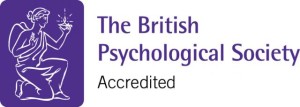
At the University of Northampton, everything we do, from funded trips to paid internships, is to give you everything you need to make a difference when you leave.
If you join this full time Sports and Exercise Psychology degree at the University of Northampton, you will receive a laptop when your course begins*. The laptops are built to a bespoke custom specification ideal for use in the seminar room, collaborative group work or studying at home.
Whatever your ambitions, we’re here to help you to achieve them. We’ll support you to identify the skills you’re learning during your course, find your strengths and secure practical experience so that when it comes to applying for jobs or further study you’ll feel confident in standing out from the crowd. We’ve created the Northampton Employment Promise because we are so confident that if you focus on your studies and complete one of our awards you’ll be highly employable by the time you graduate. Putting you in a great position to secure employment or continue your studies.
To check out the full list of perks, visit our Student Perks page or dedicated International Perks page.
*UK fee payers only (see Terms and Conditions for further details).
The Integrated Foundation Year (IFY) offers a new and exciting route into studying for the Sports and Exercise Psychology degree, attracting ambitious and driven students who are willing to learn and advance.
If you have non-standard qualifications or do not quite meet the admissions requirements we can offer you a fantastic opportunity to study a four year programme which includes an Integrated Foundation Year. The Integrated Foundation Year will help you develop the theoretical/practical and academic skills you need, in order to successfully progress to the full award.
Our four-year sports psychology will enable you to successfully follow the degree pathway of your choice while gaining essential study skills. The foundation year of your chosen degree will be studied on a full-time basis and is aimed at supporting the transition to higher education. Years two, three and four are then studied as a standard degree programme.
This Sports and Exercise Psychology course is delivered through active blended learning, a hallmark of teaching at UON. This means students will be encouraged to take a very active part in their own learning rather than sit for long hours in tiered lecture theatres. Our sport psychology modules cover a wide range of fascinating topics in psychology, sport, and exercise. Many of our teaching staff are active researchers in their specialist areas, which means module content is always current. At Waterside, we aim to provide an environment that maximises your engagement and enjoyment of learning.
You will be assessed through varied range of assessments including essays, exams, presentations, and practicals.
Open Days give you the best experience and insight to courses, people and facilities that interest you. Make your choice easier and come meet us.
Senior Lecturer in Exercise and Health Psychology
Faculty of Arts, Science and Technology
Discover"The advice I would give to anyone interested in this career path would be come with a learning mindset - and give everything a go." - Mashal -
Sports Zone at Waterside is home to a multi-use sports dome suitable for a variety of sports, including football, badminton and netball. The facilities include two sports performance labs, a pair of teaching rooms and changing rooms. In addition, there also are three outdoor multi-use games areas and floodlit full-size all-weather sports pitch. The sports dome is used for teaching, research and recreational activities.
Our purpose-built laboratories and research facilities enable you to undertake performance analysis within a supportive environment.
You are encouraged throughout your course to become members of the British Association of Sport and Exercise Sciences (BASES). There is also the opportunity for you to gain additional coaching qualifications during the degree in sports psychology.
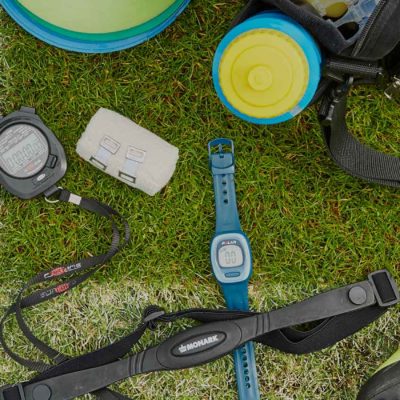
The Sport Coaching degree will develop your expertise in sport coaching, to understand participants and their sport and how to plan, deliver and review training programmes.

